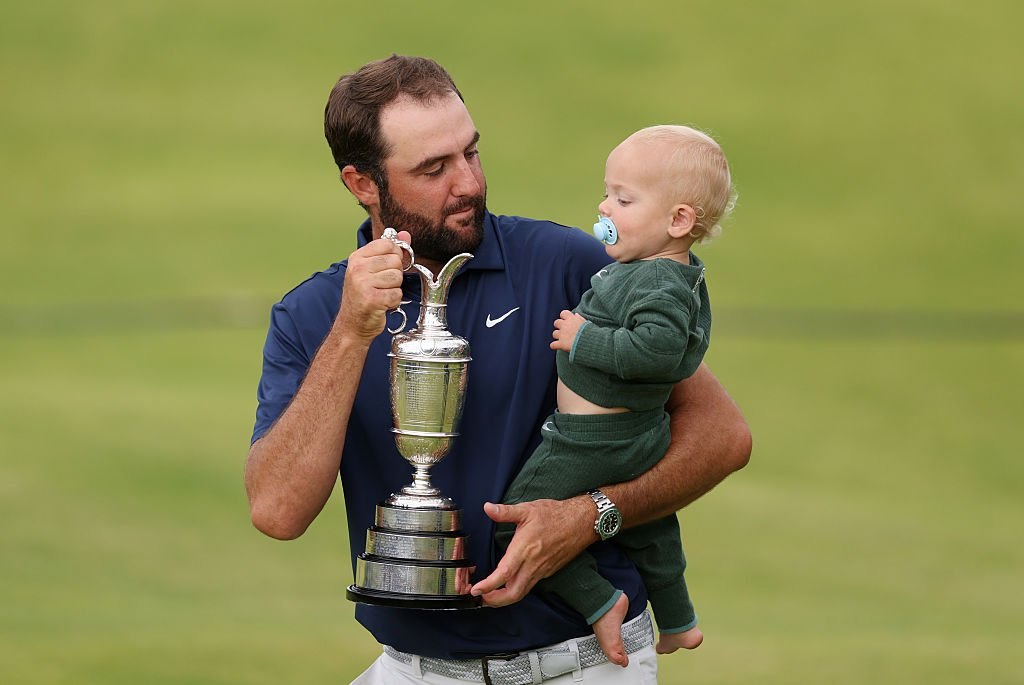Scottie Scheffler is in the midst of one of the most commanding stretches golf has ever seen. Since 2022, he’s captured four major championships — including the Masters (2022 and 2024), the PGA Championship, and the Open Championship in 2025 — and topped it off with Olympic gold at the 2024 Paris Games.
But even as the victories stack up, Scheffler has expressed ambivalence about what it all means. Ahead of his most recent triumph at The Open, he reflected candidly on the fleeting satisfaction of success, saying, “It feels like you work your whole life to celebrate winning a tournament for a few minutes… this is not a fulfilling life.”
That contrast — between winning on paper and feeling fulfilled in real life — is one many people can relate to. New YouGov polling explores what Americans think athletes should care about most in their careers.
Americans want athletes to value balance over the bottom line
Polling suggests a clear disconnect between what Americans believe professional athletes prioritise — and what they should.
When asked what they think is currently most important to pro athletes, the top response was “earning as much as possible” (38%), followed by “winning as much as possible” (30%). Only 13% thought athletes are prioritizing personal or family balance.
But when asked what athletes should focus on during their careers, the picture flips. Maintaining a healthy personal and family life emerges as the top choice (31%), followed by “winning” (22%) and “using their platform for good causes” (19%).
People across age groups emphasize different values. Younger adults (18–29) are especially likely to say athletes should focus on their personal lives (39%), while older Americans (65+) are more likely than others to see platform use and discipline as key legacy drivers. Across all age bands, however, far more Americans say athletes should care about balance and purpose than believe they do.
The contrast between perceived and ideal priorities cuts across generations — and it’s not close.
Differences exist between genders too. Men are less likely to think that an athlete’s top priority should be on maintaining a healthy personal and family life compared to women (27% vs 34%). Even so, both men and women are far less likely to feel that athletes do in fact prioritize a healthy personal and family life (11% of men and 14% of women).
US fans also support work-life balance for pros
The work-life debate goes deeper. A separate question reveals that 63% of Americans believe athletes should aim for a strong work-life balance, even if it compromises performance. That’s a striking vote in favor of emotional and relational sustainability, especially in sports built on ruthless competition.
By contrast, 27% believe that athletes do aim for that kind of balance — again highlighting a public perception that elite performers often put their personal lives second.
Scheffler’s likeability and fan appeal are rising — especially in the US
Despite his reserved personality and recent reflections on fulfillment, Scottie Scheffler’s fan appeal is on the rise — especially in the US. YouGov Global Fan Profiles data shows that Scheffler’s popularity among American golf fans has climbed from 13% in early 2024 to 34% as of June 2025.
That growth puts him almost level with Rory McIlroy, whose long-established profile has kept him consistently popular — peaking at 33% in the same June 2025 wave. While the two golfers have different public personas, McIlroy serves as a natural point of comparison: both are former world No. 1s, Major champions, and brand ambassadors with global fanbases. At age 36, McIlroy is seven years older than Scheffler and has achieved a career grand slam – a milestone that Scheffler himself is angling for.
In the UK, however, the gap between the two remains wide. Over half of British golf fans (57%) cite the native McIlroy as one of their favorite players, compared to just 11% for Scheffler.
That disparity reflects not just McIlroy’s Northern Irish roots but also his long-standing media presence and Ryder Cup contributions — elements that build deep fan familiarity over time.
Globally, Scheffler also ranks highly — especially in Canada (18%), Argentina (17%), and Sweden (13%) — though his strongest market by far remains the United States (26%).
